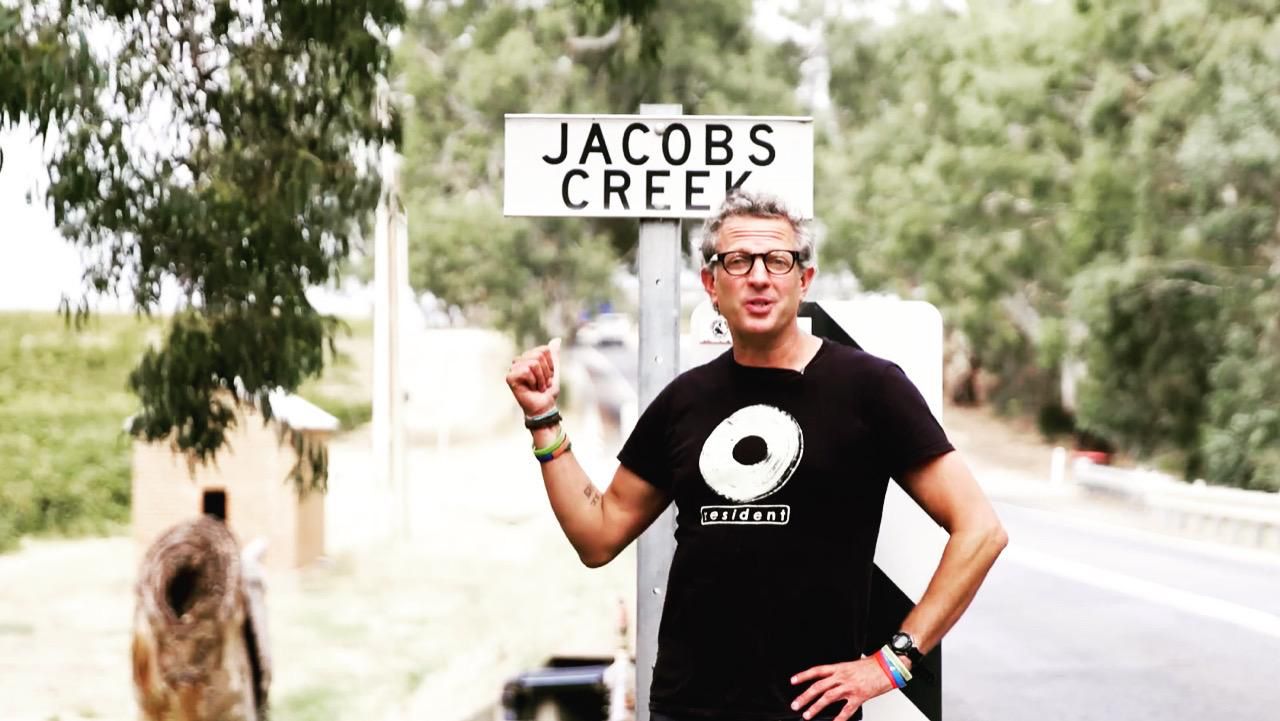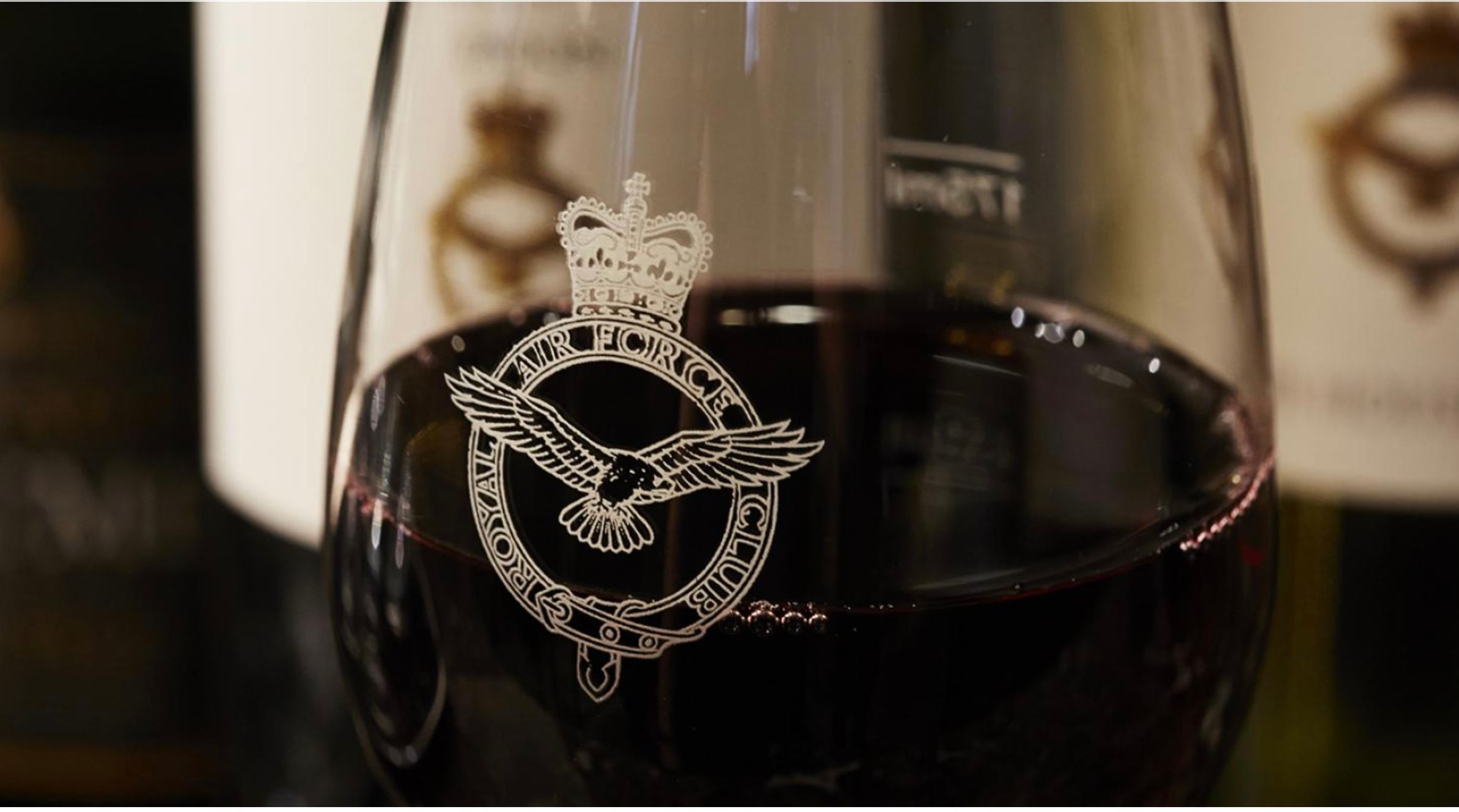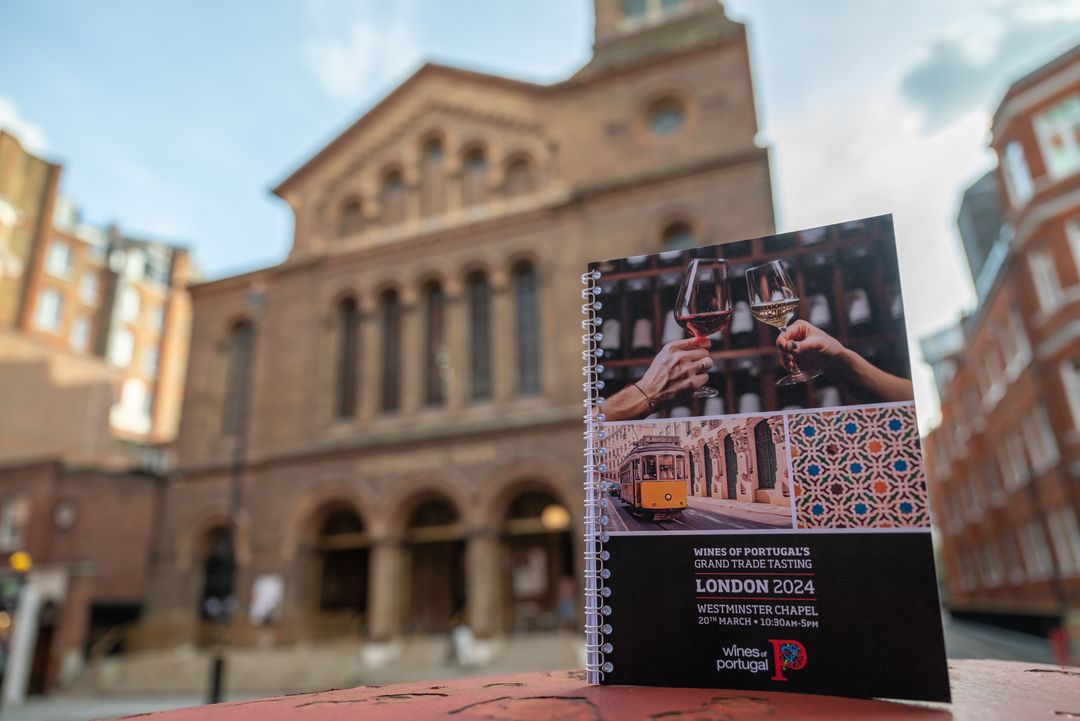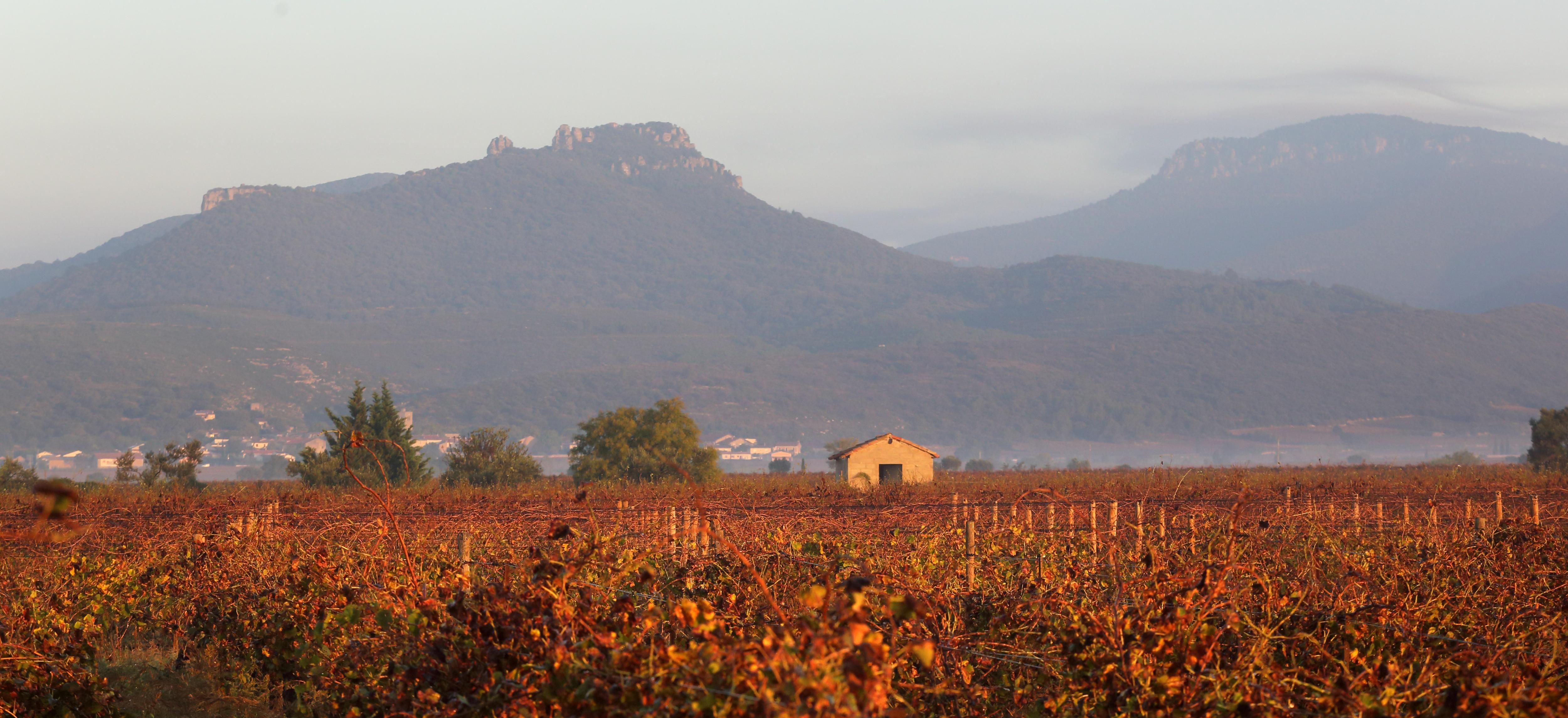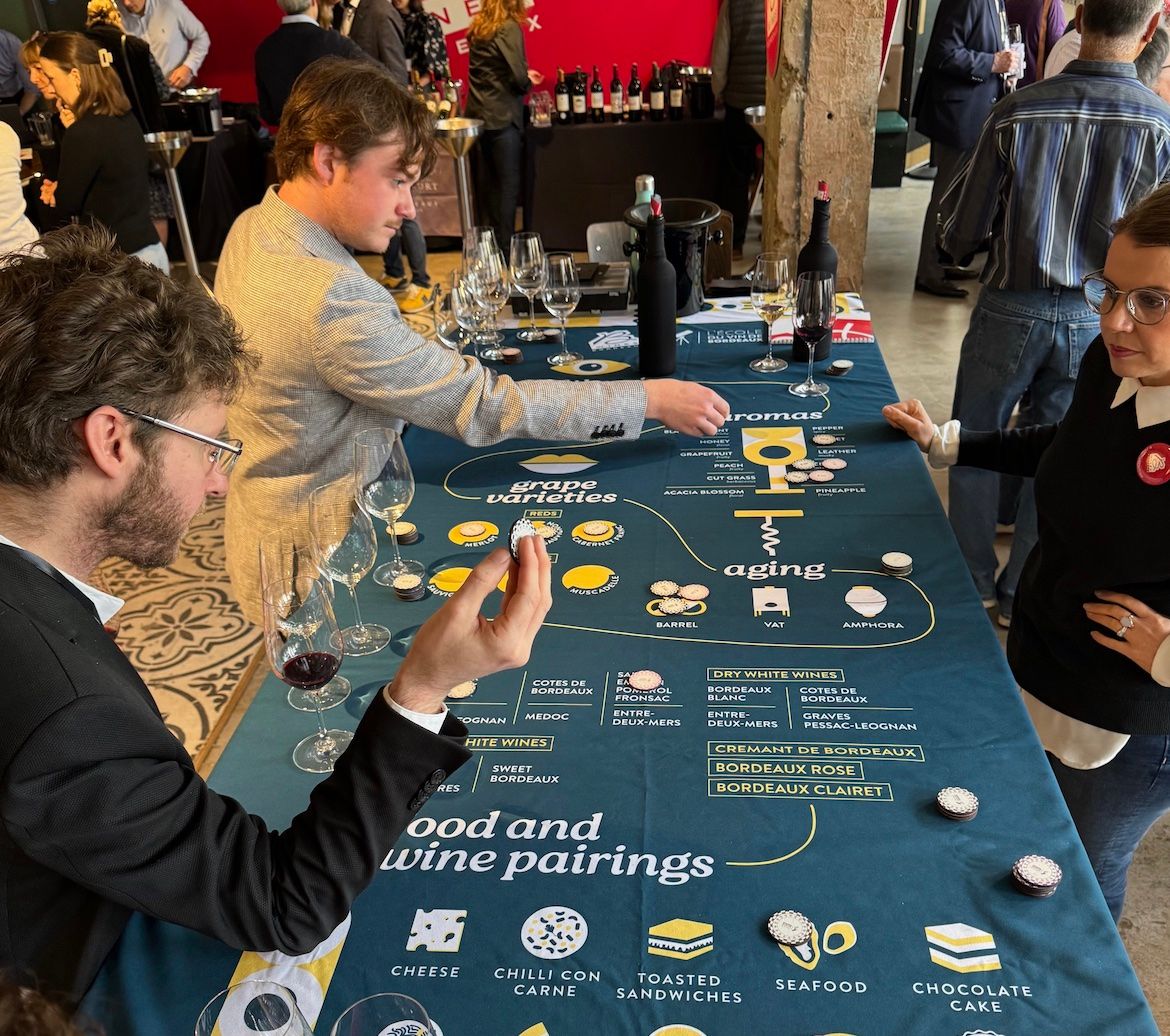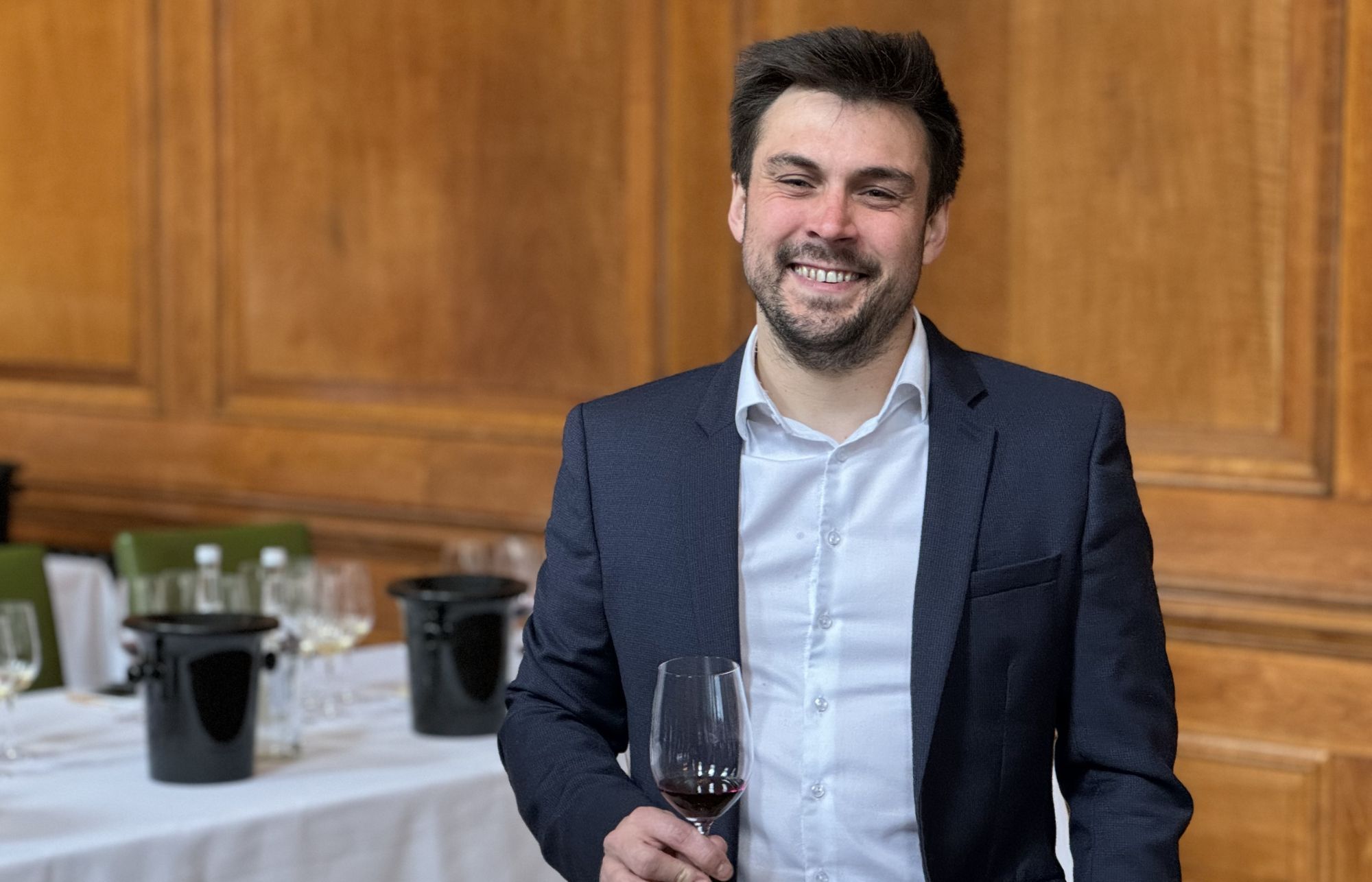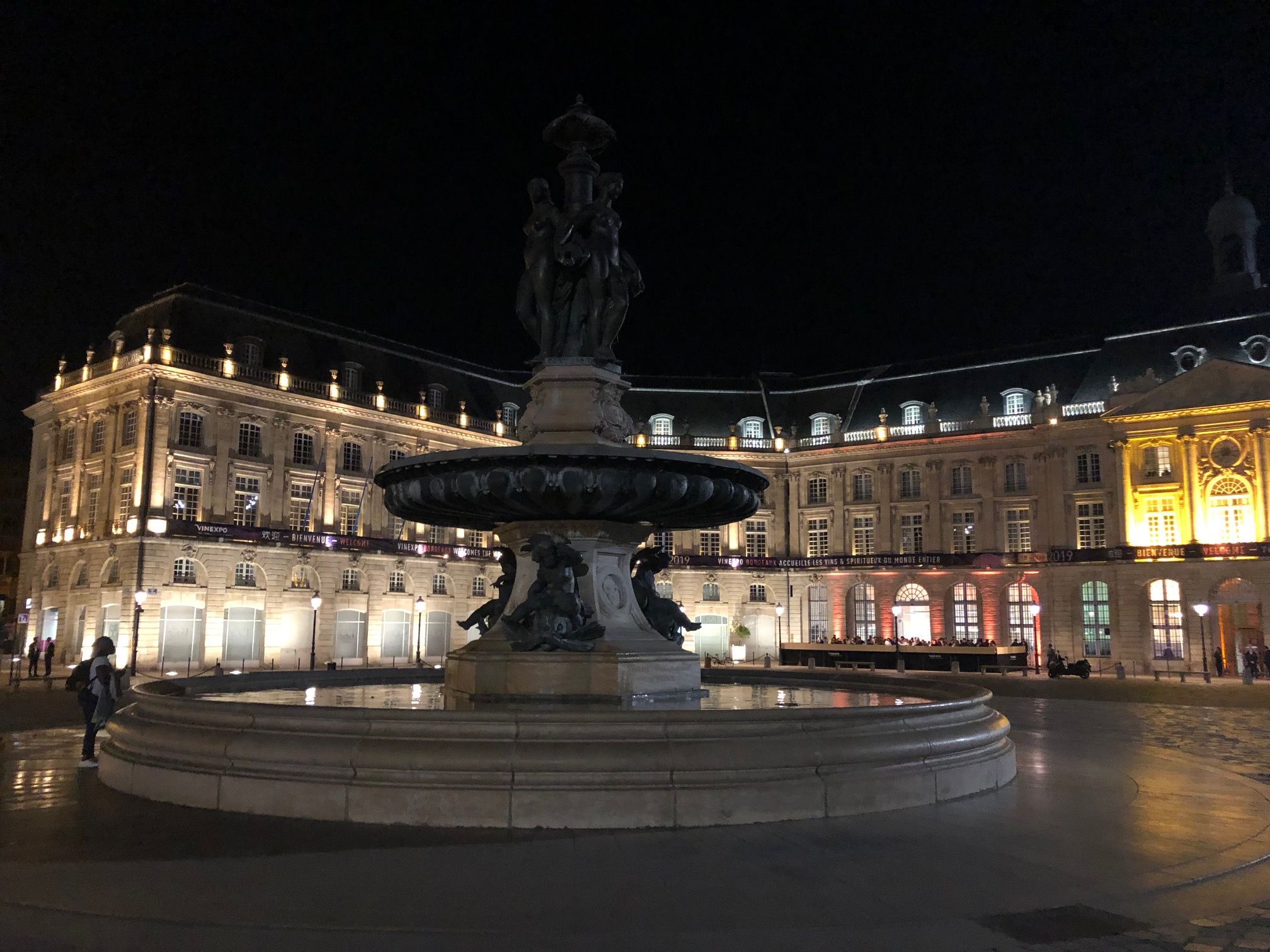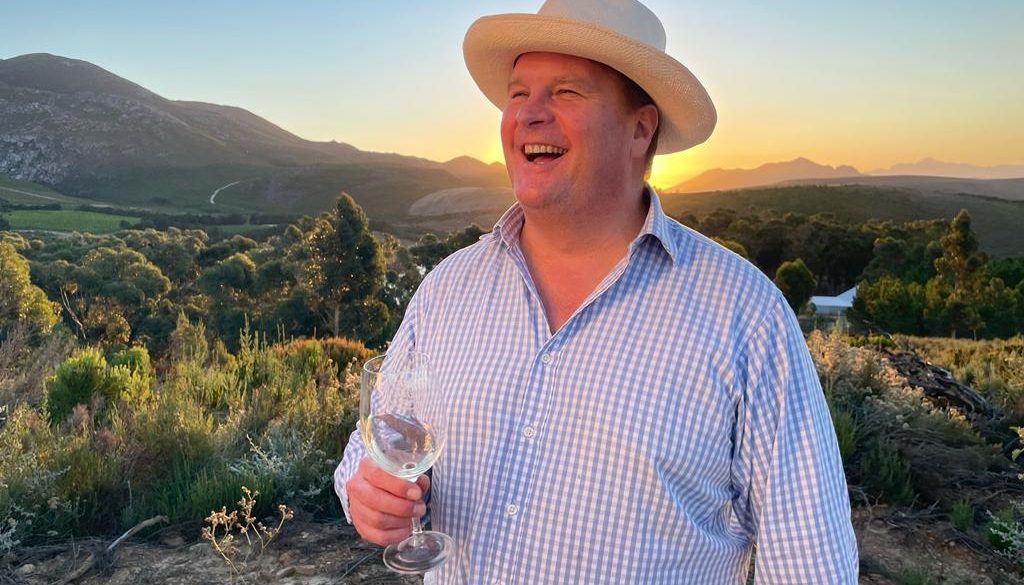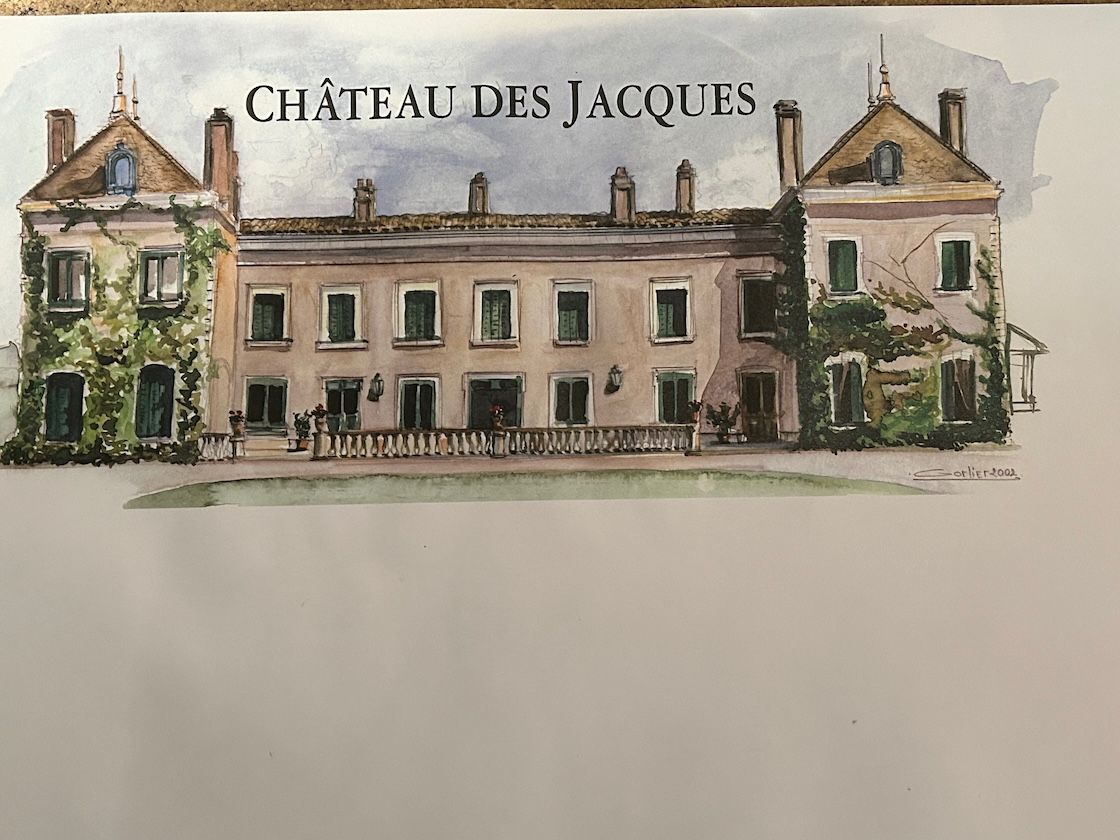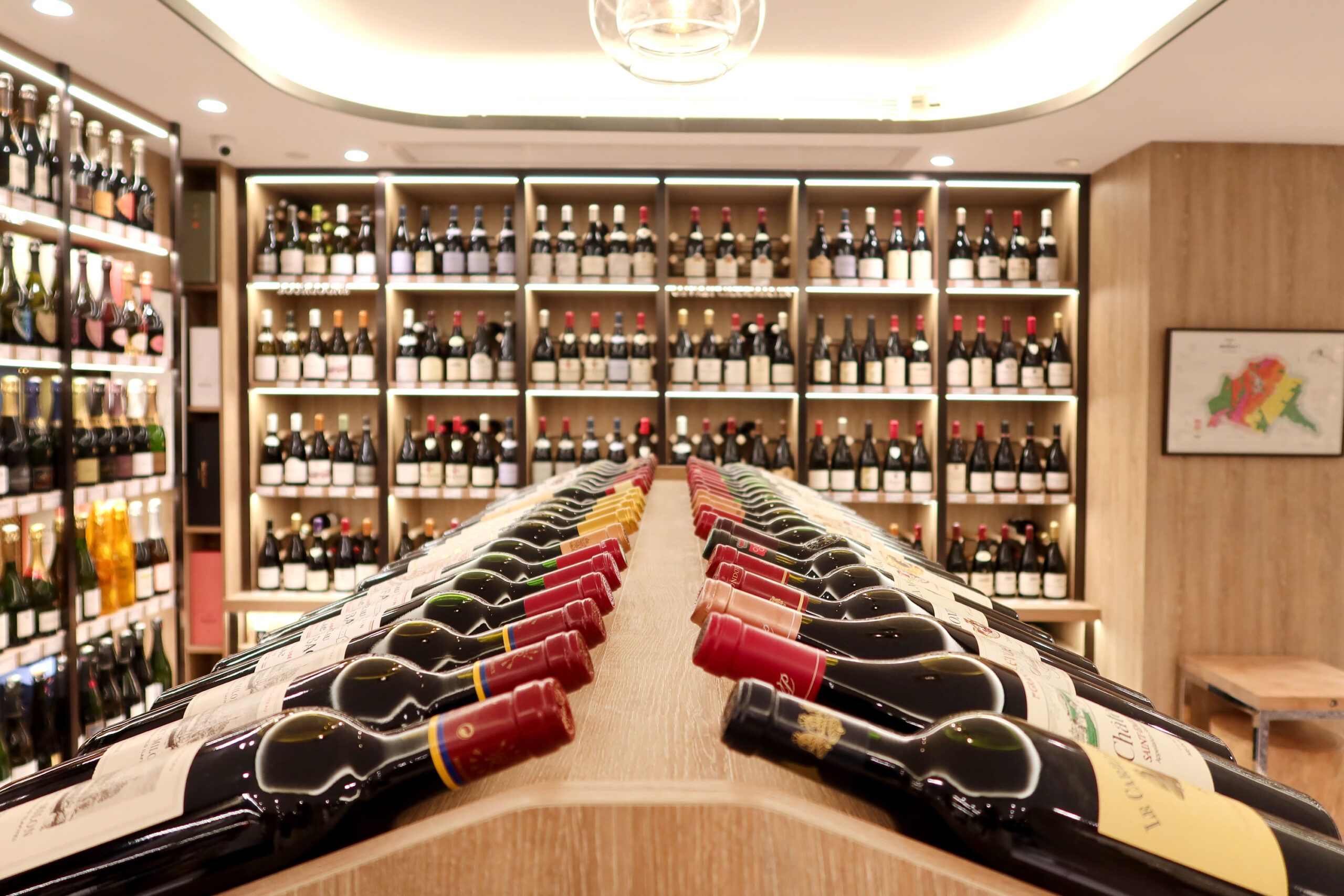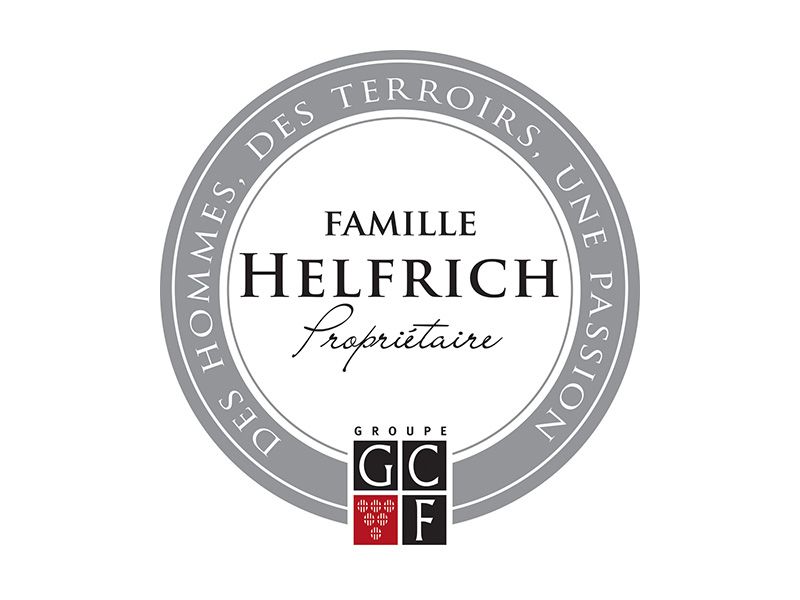Tim Wildman is using his training as a teacher and natural presentation skills to show he is a really effective communicator when it comes to talking about wine, on WineTutor.tv, in a way that can educate, but also entertain at the same time.
Online is the place to be at the moment for us all. What are you doing with WineTutor.tv at the moment?
There’s a huge amount of activity on the website. We’ve launched three major new initiatives in the last month alone. These include two new video sections, Syllabus Reports and Grape to Glass, as well as the new #MWStudyFacts database.
We’ve been beavering away behind the scenes for the last two years on all these projects and it’s very exciting to be able to share them with our audience, especially at a time when people are looking for more online resources.
The very first WineTutor.tv…”Hello, good morning and welcome..”
Can you tell us more about Syllabus Reports?
Syllabus Reports is an extension of the existing MW Syllabus films that WineTutor.tv is known for, but rather than our usual five to 10 minute “bite sized” films, these new videos are covering subjects in greater depth with documentary length films of between 45 to 60 minutes. Leading producers around the world who have given us access to their viticulturists, winemakers and experts to create these in-depth “wine documentaries”.
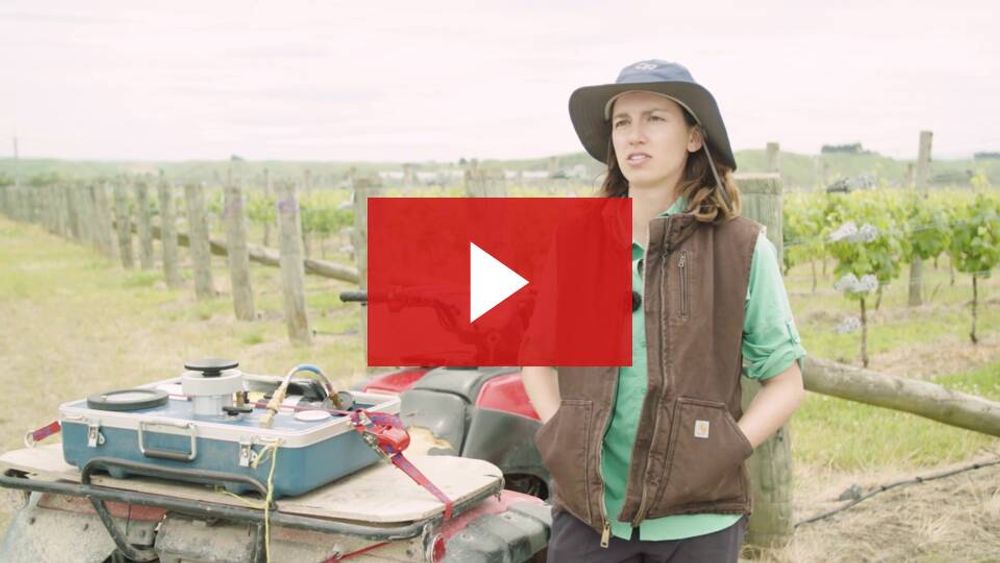
WineTutor.TV | Study Smart, Stress Less
New films in this section that have been added in the last week include Screwcaps, Precision Viticulture and Rootstocks and Grafting that we’ve produced in collaboration with Villa Maria in New Zealand.
We’ve also added Barossa Old Vines that we made in collaboration with Langmeil and the Barossa Grape and Wine Association.
There’s a film on Establishment of Vineyards what we made with the UK’s largest vineyard management company Vine Works, and we have a film on ‘Yield’ that we produced with Delicato Family Wines in California.
And Grape to Glass?
Well, as far as we know this is a global first. We’ve partnered with some of the worlds leading wine brands to shoot a series of films that go behind the scenes of their global activities as seen through the lens of the five MW Theory Papers.

Tim Wildman MW has been able to attract funding from major wine brands to help support and make his WineTutor.tv project possible
In the early days we’d kept the shorter films “brand free” so if we were going to collaborate with wine companies I wanted to do it in a way that wouldn’t compromise the integrity of the content, in other words no “message from our sponsors” kind of approach.
The crucial first step in achieving this was for me to approach wine companies that I had always admired and that I knew worked to exceptional standards amongst their peers. The challenge for me was then to convince these companies that they could trust me and my film crew to portray them in a positive light when they gave us an “access all areas” pass.
It’s a fine balance to strike, because these films are not meant to be advertorials, but we’ve achieved it by focusing in on the aspects of their production and marketing that are unique to them.
The MW Theory Papers are Viticulture, Vinification, Handling of Wine, Business of Wine and Contemporary Issues – so we’re really covering the entire value chain, hence calling the films Grape to Glass!
There’s a huge amount of wine content out there, but 99% of it is aimed at a consumer audience, which is fine, but we felt there was gap in the market for highly technical, super geeky content specifically aimed for our global audience of MW students. We also have a lot of consumers watching WineTutor.tv, so we know there’s a thirst for more in-depth knowledge amongst the public as well.
What have you covered so far with Grape to Glass?

The first series of films were shot over the last 12 months with Campo Viejo in Rioja and Jacob’s Creek in South Australia. It’s important to say that these aren’t generalised films on “how wine is made” – they are much more personalised and focused than that.
We shine a light on the methods and processes that are unique to these specific companies, and tell the story of how they achieve quality, shape their styles and take their products to a global market. We’ve been lucky to be granted an access-all-areas pass by these companies, and it’s incredibly exciting to shine a light on the inner workings of how the worlds leading wine brand operate. Many of the companies are already using the films for their own in-house training to provide their staff with greater knowledge.
We think that as well as MW students the Grape to Glass films will be of interest to engaged consumers who would be interested to know how their favourite wines are made, and for that reason we’ve also started sharing these films on our WineTutor.tv YouTube channel.
Where did the idea for WineTutorTV come from?
WineTutor.tv came out of the private classes that I started doing when I passed the MW exam, which was back in 2008. I’ve got experience as a teacher and it was clear to me that a lot of students simply needed help in how to structure their studies and best practice around essay writing.
I initially ran the classes on an ad hoc basis, in places where I was travelling for work anyway, which was mainly the UK, Hong Kong and Australia. I began to receive requests from students around the world as the demographic spread of the MW student population started to expand.
Initially I filmed a day of my class room sessions and put them up online as a paid digital download. The result was staggering, with hundreds of MW students being willing to pay for the videos.
This really made me realise the extent to which students were seeking help, especially those in countries without a strong existing student community or support network. It’s no surprise when you consider that the MW exam is still largely a self study program, and the pass rate has hovered around the 10% mark for decades.
I wanted to create something that was of real value to the students, and crucially was sustainable and scalable. It was clear from the start that a subscription model was out of the question, I wanted to establish something much more along the lines of modern digital publishing.
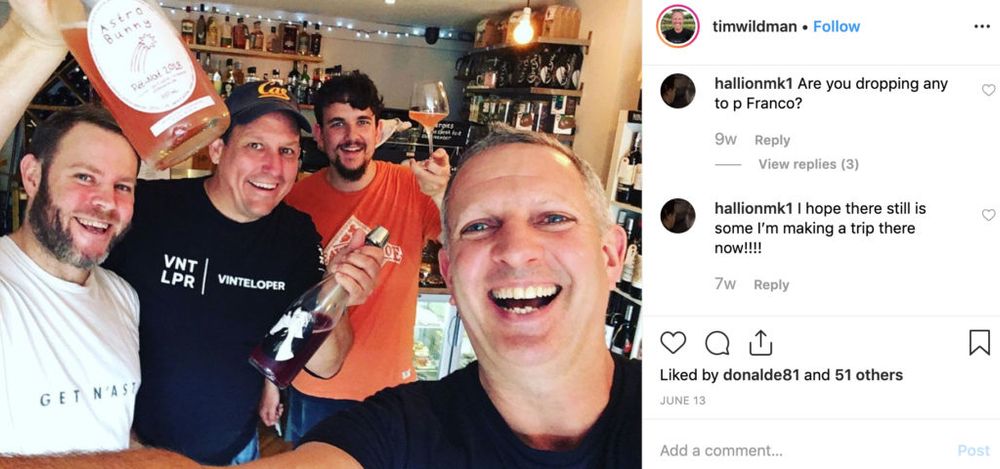
When he’s not on video he’s on Instagram promoting his wines
How have you made it work commercially?
The plan was to self fund the first few years, to establish the platform and create high quality content relevant for MW students. Once we’d achieved that first phase, and could prove we had a highly engaged global audience of not only MW students but also MW and WSET Diploma students as well as thousands of engaged consumers, it was time to move to phase two.
The second phase involved teaming up with wine companies who would be interested in being film partners, to create high quality content that featured their own people, products and places. For the companies we partner with it’s an opportunity to share their brand stories and company culture with a highly engaged, mainly trade audience, and for WineTutor.tv it provides a sustainable and scalable business model.
How do you go about putting the programmes together?
When we started there were two main parts to the website, Exam Technique and Syllabus films.
The Exam Technique films are bite sized videos taken from the content that I developed over many years with my class room tutorials. The Syllabus films started off as five to ten minute shorts, but now that we have sponsorship we’re expanding them to documentary length features.
The aim is to eventually cover all 150 topics in the MW syllabus, so far we’re about a third of the way there. We’ve also just added a third section, which is the #MWStudyFacts database. This is a fully searchable database where students can share their facts and examples for the Theory papers.
We’ve still in the Beta Testing phase, but we’ve launched it on the website so students can provide feedback and get a sense of what the resource can offer.
In advance of the next academic year we’ll make the database password protected, and students will have to submit twenty original “Study Facts” each year to retain access. This way we’ll ensure that the database continues to grow and through this crowdsourcing model only those that contribute can benefit, which seems fair.
One hurdle we’ve got to overcome is to secure funding for the administration of the database. It won’t be a huge requirement, and we’re hoping to find a wine company who would be interested in being the sole sponsor of the database.
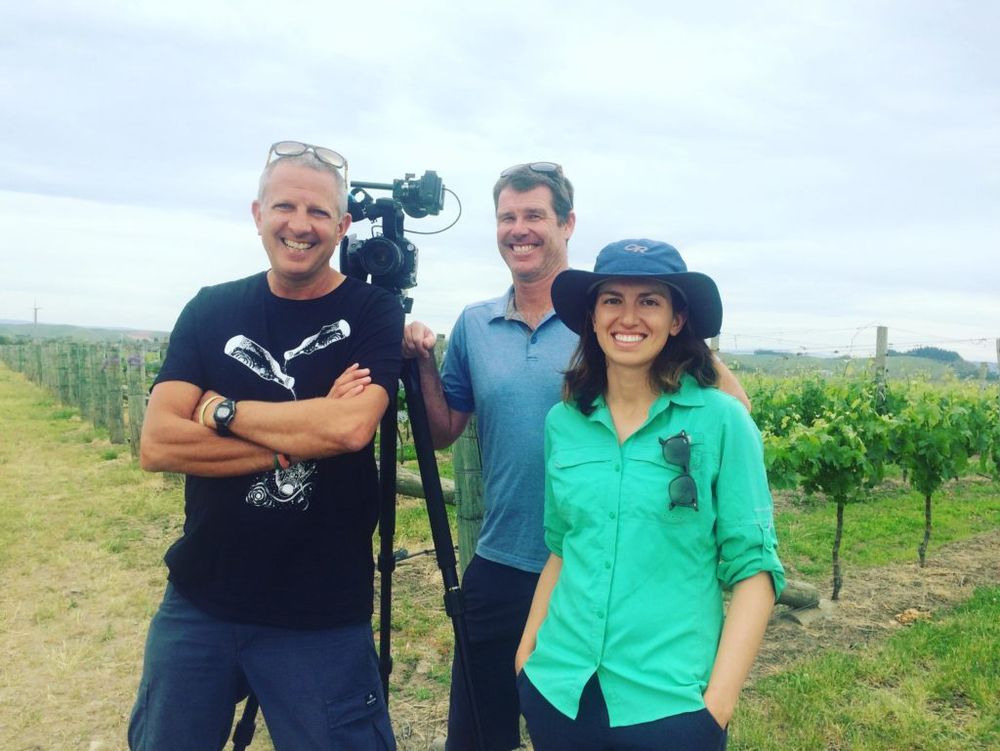
Villa Maria was one of the first major producers to team up with WineTutor.tv
What sort of style are you going for – serious but entertaining?
The early films were, in a word, gonzo! I’ve always believed that you can still have fun whilst learning, even if the content is at a very high level. The early films all have a short ‘comedy intro” – or at least something that I found funny at the time.
As we’ve started to produce more professional films with our wine company partners, such as the Grape to Glass series, we’ve raised our game in terms of production values and polish.
The films we’ve shot in the last year are getting close to TV documentary quality, and are therefore a bit more serious and slick than the earlier short films.
But the general feel of the website remains creative and colourful and we bring an energy and enthusiasm to everything we do that I think is representative of the WineTutor.tv brand.
Is that a hard balance to get right?
There’s no excuse for boring content these days, even if your main job is to educate you still need to entertain as well. This understanding is forgotten or ignored in a vast amount of wine content, whether it’s consumer or trade facing.
I’ve always tried to shape our content on the Top Gear model. When we talk about wine we are super serious, but we also have fun while we’re doing it, and I hope that comes across.
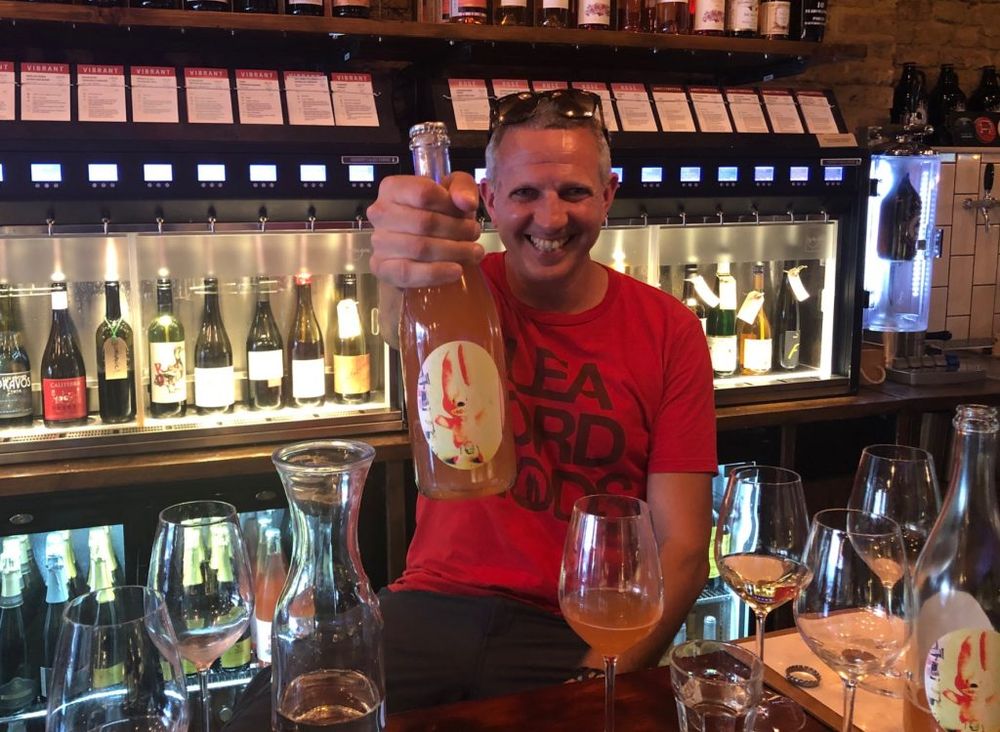
As well as talking about wine Tim Wildman also knows what he is doing as a winemaker in his own right with his range of pet nat and natural wines
Do you collaborate with the Institute of Master of Wine on this?
WineTutor.tv has always been independent of the Institute of Masters of Wine, but was established and operates with their blessing. So far we’ve not worked together, but these are unprecedented times.
The website is already set up to reflect the structure of the MW syllabus and additional third party content could be easily dropped in. I think we’ll see a lot of virtual classrooms pop up over the coming months, and wine education will be no different.
How do you fund the filming and make it work commercially?
For the first three years the project was self funded. I had the vision from the start, plus a large dose of naive confidence that if I built it they would come. It’s lucky that I do other things professionally, so I could afford to build it slowly, albeit on a shoestring.
I think it’s also been incredibly helpful that I’ve never had any ambition to be a wine educator or communicator in the traditional sense, be that press or TV.
If I made a fool of myself with WineTutor.tv it wouldn’t matter to my career ambitions, so I think that helped, especially in the early years with establishing the playful, gonzo style. So for the first few years there was no commercial model, it just cost me time and money and was a labour of love. But I always had faith that if we could attract the right audience and establish the reputation of the brand then we’d be able to attract a high calibre of sponsorship partners. This is exactly what has happened in the last the year and a half.
I couldn’t be prouder of working with companies such as Delicato, Jacob’s Creek, Langmeil, Campo Viejo, Villa Maria and the Barossa Grape and Wine Association and I’m excited as to what the future holds in terms of film partnerships.
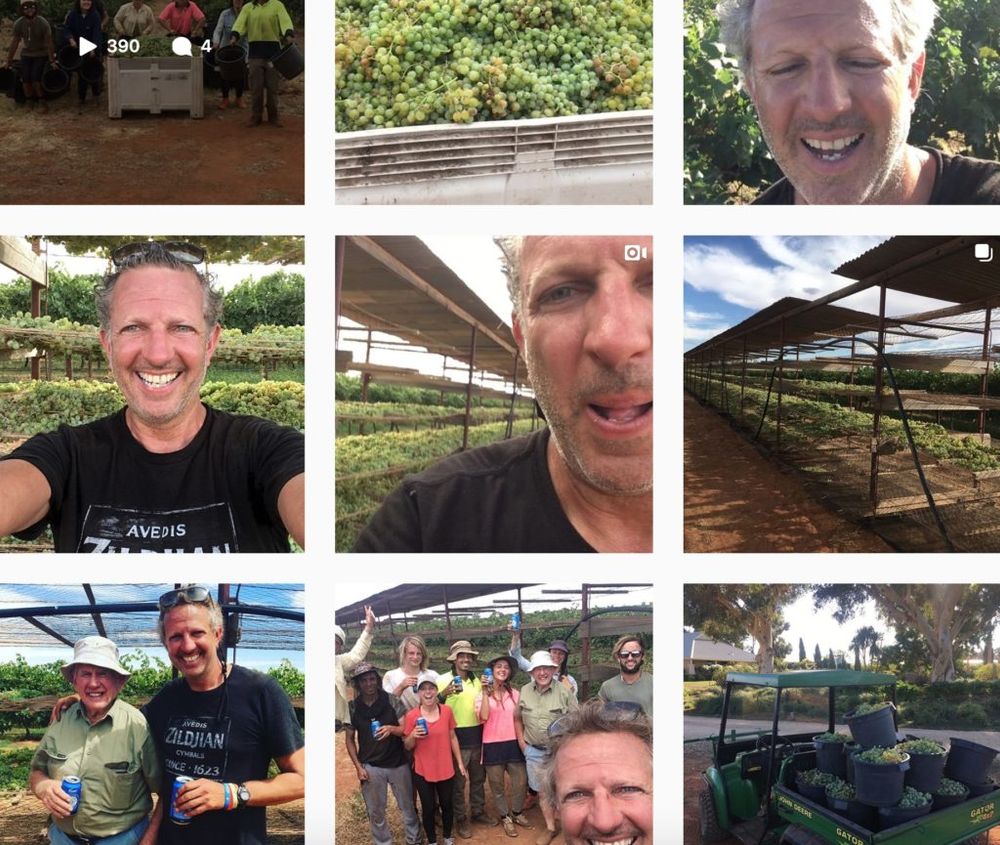
Winemaking warts and all is how Tim Wildman MW has been willing to share his experiences and enthusiasm as a winemaker…and he is very rarely very far from a camera!
How does a student use them – do they pay?
All content is free to view, you don’t have to be a Master of Wine student, anyone can go on the website. We did start off having a requirement to register, but we took that down last year, it’s now 100% open to all.
How much of syllabus have you covered?
So far we have 36 of the bite sized films and 14 of the longer documentary length films. Together they come to around twenty hours of screen time, which is more than the Lord of the Rings and Hobbit films combined! I feel that for a self funded project this isn’t a bad achievement in less than in five years.
Looking ahead we’d like to cover the entire MW Theory syllabus, we’re about a third of the way through now. The Grape to Glass films have great potential, as every winery is unique in its own way and they all have their own story to tell.
I’d love to spread the reach of those films to countries we haven’t been to yet, such as Argentina, Chile, Italy and South Africa.
What would be your pitch to students to use WineTutor.tv?
WineTutor.tv was set up to help more students pass the Master of Wine exam. The pass rate for the MW has sat at around 10% for decades now; this is partly to do with the fact that the bar is set so high, but also because the program is self study.
Unlike an MBA or a Masters qualification, where there is a structured study program to be followed and you come out with your piece of paper at the end, MW students have to work it out for themselves, with little guarantee of success. Of course they need to be motivated, knowledgeable and “fit to pass” but there is a gap in educational support that a lot of students fall into and ultimately fail because of.
This gap often has nothing to do with their knowledge of wine but is more about their ability to write essays and to pass exams. We’re talking here especially about those students who have English as a second language, or who were not brought up in an education system that required them to write essays, which is most of the world!
The IMW does have a something that is called their education program, which is based around an annual week long seminar supported by term time course work assessment. The program has improved greatly since I was a student and has some fantastic resources and people working on it, but despite all the improvements, that stubborn pass rate is not shifting.
Quite rightly the Institute never wants to lower the bar, and at the same time has always avoided “spoon feeding” students, both of which I agree with, elite qualifications have to be earned. But at the same time I know from my own experiences as a student, and later as an MW educator that there is a sizeable gap that exists between the skills that students come to the program equipped with, and anything that could be remotely described as “spoon feeding”.
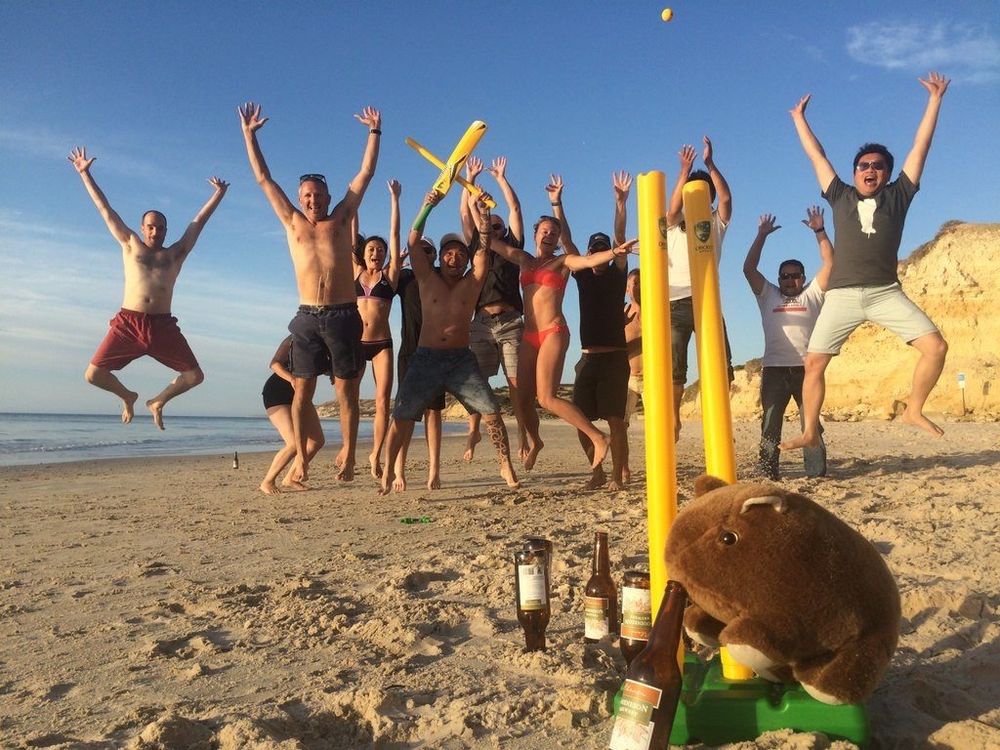
Tim Wildman also runs the James Busby wine tour where he takes key wine buyers, sommeliers on an educational – and fun – tour of Australia
WineTutor.tv is about trying to bridge that gap. We don’t tell students what they need to know to pass the exam but we try and show them which direction to go in.
I see no reason why the pass rate can’t be doubled with a small dose of encouragement and a helping hand, all without the standard being lowered one inch. Ultimately it’s about providing advice, guidance and orientation to help more students get over the line and fulfil their potential.
I think part of the appeal is that we don’t speak down to our audience, or try and dumb anything down, if anything we go in the opposite direction, and much of the content would be quite challenging if you’re not in the trade. But our aim was always to provide a niche service, with specialised content aimed for a high level audience. Our audience is also highly engaged, our average viewer watching each film an average of four times, which in the world of online videos is almost unheard of.
In terms of being in front of the camera, I make it up as I go along! I’ve never had any formal training, it’s like anything, you’ve got to get stuck in, get your hands dirty, and not be afraid of making a fool of yourself.
Eventually with time and practice you become, perhaps not good, but hopefully a little less bad.
I’m also lucky enough to be working with some very talented videographers and editors, and the quality of what we produce is going up all the time.
And what about this other project Thinky Drinky?
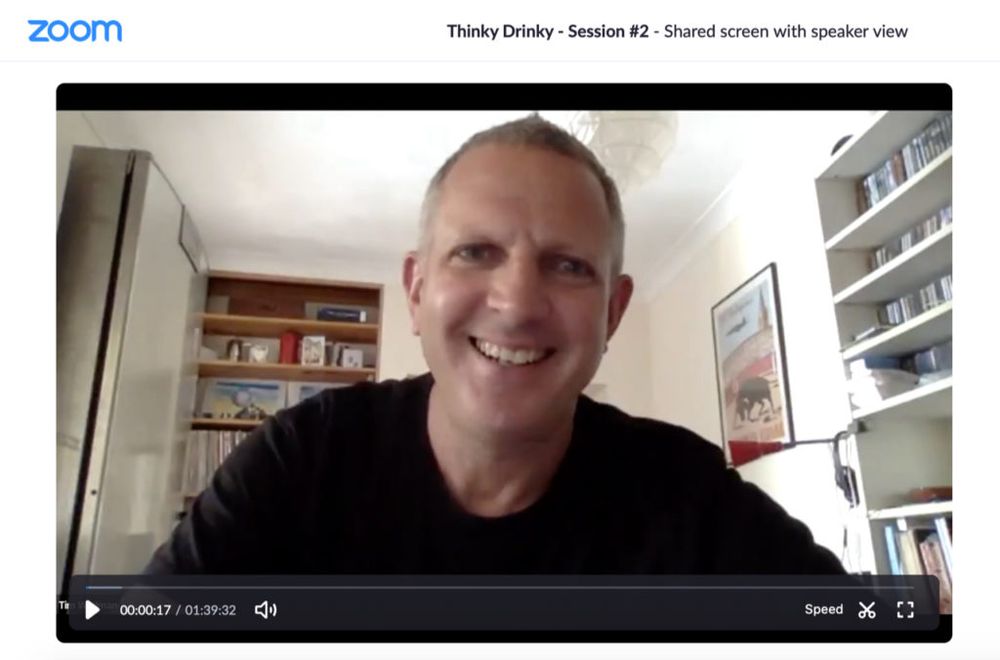
These lockdown times are a perfect opportunity for Tim Wildman to share his love and enthusiasm for wine on Zoom
In the light of the Master of Wine exams being cancelled this year, and the general lockdown conditions we’re all currently living under, I thought it would be a good idea to set up a Zoom webinar for students stuck at home. The initiative is as much about social interaction and keeping up morale as any attempt at formal education, it’s really just a bit of fun and to help students stay motivated.
How are you running the forums online?
We’re using Zoom for the webinars, communicating on the MW Student Facebook group and have a Google Drive folder for sharing resources and reading material for the sessions.
People can also contact me at on Instagram @TimWildman or tim@winetutor.tv
How does it work?
We’re running two sessions a week, one for Theory (which is the essay papers) and one for Practical (which is the tasting). We’ve done sessions on Online Resources for Theory and how to use techniques to funnel arguments in a Practical session, as well as how to share dry notes, and identifying and structuring the points you want to make.
We’ve also asked students what subjects they’d like to see covered, and we’ve got a spreadsheet set up to capture all the suggestions. I’m trying to keep the sessions very “light touch” and it’s more about encouraging the students to share information with each other rather than me doing too much formal teaching as such.
I’ve been working with the students to hand over the baton so they can keep running the webinars on an ongoing basis after I’ve finished the “lockdown” sessions. They are already talking to the IMW Office to help organise this on a permanent footing, as well as inviting wineries and MWs to speak on their areas of specialist knowledge. Villa Maria, Jackson Family Wines and the Barossa Grape & Wine Association have already signed up to provide winemakers and experts to guest host a webinar. So a really great outcome from something that started out as a short-term initiative to help boost morale during the crisis and will become a long term “lockdown legacy”.
